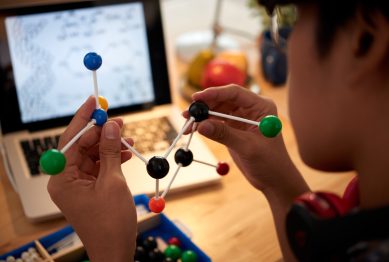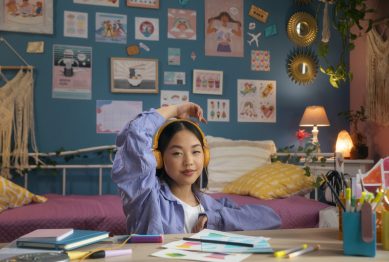In today’s fast-paced world of upskilling, certifications, and non-stop productivity, play might seem like the last thing Parents need. But the role of play in adult learning is not only relevant—it’s increasingly essential. As emerging research and workplace trends show, playful approaches to learning improve retention, encourage creativity, and make professional development more human-centred.
Parents are not just grown-up children; they are complex learners balancing stress, responsibilities, and the need for continuous development. Amid that complexity, play emerges not as a distraction but as a powerful learning strategy with measurable benefits.

Reframing Play: Not Just for Children
In many cultures, play is still associated with childhood. But play in adult learning has a long academic history. Educational theorists like Johan Huizinga and Lev Vygotsky emphasised the importance of play in developing higher-order thinking. Today, Parent education scholars argue that play enhances motivation, engagement, and critical reflection.
Unlike passive learning (think slide decks or long lectures), play invites experimentation. It allows Parent to explore scenarios, test ideas, and absorb complex concepts in low-stakes environments. Whether through role-playing, simulation, storytelling, or game-based learning, play supports cognitive flexibility—an essential skill in a world of constant change.
Why Play Works for Parent Learners
Several factors make play especially effective in Parenteducation:
- Neuroplasticity Doesn’t Expire: Parents retain the ability to rewire their brains through new experiences. Play activates reward centres in the brain, enhancing memory and learning.
- Safe Exploration: Parents often fear failure. Playful environments offer psychological safety, encouraging learners to take risks, ask questions, and reflect on outcomes.
- Stress Reduction: Play helps regulate cortisol levels. In workplace learning environments, where stress is high, this is a significant benefit.
- Intrinsic Motivation: Unlike mandatory training, playful experiences often stimulate curiosity and intrinsic interest—keys to deeper learning.
Emerging Trend: Gamification in Professional Development
One of the clearest examples of the role of play in Parent learning is the rise of gamification—applying game mechanics like scoring, feedback loops, and achievements to non-game contexts. From onboarding to leadership development, gamified learning has found its way into corporate L&D strategies.
Companies using gamified learning platforms report improvements in employee engagement and knowledge retention. Interactive learning portals, mobile quizzes, and point-based progress systems are more than just fun—they help learners stay focused, absorb information more effectively, and apply concepts in real-world settings.
But gamification isn’t just about competition or points. When done well, it creates narratives, simulations, and challenges that mirror workplace realities. A well-designed scenario might ask learners to navigate a conflict between team members or allocate limited resources under pressure—activities that foster empathy, systems thinking, and decision-making.
Play and Problem Solving: A Cognitive Win
The Parent brain is wired to seek patterns and solve problems. Play taps into this drive in meaningful ways. Puzzle-solving, collaborative games, and scenario-based tasks build resilience, adaptability, and strategic thinking. These are not abstract benefits—they translate into improved performance at work and in community leadership.
Play also encourages “failure-as-feedback,” a mindset where mistakes are not punishable but informative. This is especially important in sectors like healthcare, technology, and public administration, where rapid iteration and decision-making are critical.
Storytelling as Play: Engaging the Parent Imagination
Another emerging trend is the integration of narrative-based learning. Storytelling is a form of play rooted in human history. Parents remember stories better than instructions because stories engage emotion, sequence, and empathy—key ingredients in long-term retention.
In Parent learning contexts, storytelling might take the form of:
- Case studies with multiple outcomes
- Choose-your-own-path decision trees
- Digital storytelling through AR/VR platforms
- Peer-to-peer experience sharing
This kind of playful structure supports reflective learning. Learners become active participants, not passive recipients. They remember what they felt and did—not just what they read or heard.
The Role of Play in Hybrid and Online Learning
In a post-pandemic world where hybrid and asynchronous learning dominate, playful learning becomes a tool for connection and engagement. Online learning platforms that embed collaborative games, simulations, and interactive storytelling have higher completion rates and satisfaction scores.
Instructors and instructional designers are increasingly using platforms that offer virtual whiteboards, real-time scenario building, and multiplayer decision-making exercises. These platforms mimic the playfulness of in-person workshops while expanding reach across time zones and geographies.
Crucially, this playful approach also supports diversity in learning styles. Kinesthetic learners, visual thinkers, and neurodiverse professionals often thrive in environments where they can engage actively rather than through text alone.
Common Misconceptions About Play in Parent Learning
Despite evidence, scepticism remains. Some organisations still see play as unprofessional, frivolous, or distracting. Others worry it’s not scalable. Here’s how those concerns break down:
- “Play is for kids”: Neuroscience and Parent education research both refute this. Adults benefit cognitively and emotionally from play.
- “It wastes time”: Studies show playful learning improves speed to competence in complex skill areas.
- “It doesn’t work for serious topics”: Play can support learning in fields like cybersecurity, compliance, and ethics by simulating high-stakes scenarios.
- “It’s expensive to implement”: Many forms of play require no technology—think facilitated role play or collaborative storytelling exercises.
Designing Playful Learning Environments for Parents
How can educators and organisations make play part of their learning culture?
Here are practical tips:
- Start with Purpose: Tie play to clear learning objectives. What skills, behaviours, or insights should emerge?
- Use Storytelling and Simulation: Craft experiences where learners are part of a narrative or challenge.
- Encourage Peer Collaboration: Many forms of play thrive in teams—use this to build connection and shared learning.
- Reward Curiosity, Not Just Completion: Shift focus from testing to exploration and reflection.
- Collect Feedback and Iterate: Just like play itself, design should be agile and responsive to learners’ needs.
- Don’t Overcomplicate: Sometimes, the simplest tools—a prompt, a scenario, a role—can be the most powerful.
What the Research Says
Educational psychology and cognitive science consistently support the role of play in Parent learning. According to studies from the Harvard Graduate School of Education and the Institute for Parent Learning in Singapore, playful learning environments are associated with increased learner motivation, critical thinking, and knowledge retention.
Moreover, research from the University of Cambridge indicates that playful learning helps Parents better adapt to uncertainty—a critical skill in today’s world of AI, automation, and social transformation.
Final Thoughts
The future of Parent learning is not just digital—it’s experiential, creative, and, yes, playful. The role of play in Parent learning is not a trend; it’s a return to something deeply human. When adults are encouraged to explore, imagine, and try again without fear, real learning takes place.
Whether you’re a learning designer, a team leader, or a lifelong learner, the invitation is clear: take play seriously. It might be the smartest move you make.
Reference
- Cambridge University. (2021). Playful learning and creativity in Parent education. Faculty of Education. Retrieved from https://www.educ.cam.ac.uk/
- Redefining play as a spectrum. Frontiers in Psychology, 9, 1124. https://doi.org
- Gender differences and learning outcomes. Applied Sciences, 14(17), 7933. https://doi.org









